
The BC CCUS visioning workshop took place on March 22, 2022 with participants from Industry, Transportation, Policy, NGOs, Academia.
The climate emergency needs carbon capture and storage as part of the solution.
The targets set at COP26 in Glasgow call for urgent action around the world to alleviate the disastrous impact of climate emergency. Carbon Capture, Utilization and Storage (CCUS) is globally recognized as a key pillar of national and regional strategies to achieve net-zero by 2050.
B.C.’s Roadmap to 2030 commits the Province to the decarbonization of B.C.’s industry in line with provincial and sectoral greenhouse gas reduction targets. It includes a commitment to develop a coordinated provincial approach to establishing an appropriate enabling environment to promote the deployment of CCUS across a wide range of industrial sectors.
The complexity of climate change requires an interconnected approach.

Natural Resources Canada (NRCan) has identified B.C. as a priority province with respect to the use and refinement of its National CCUS Modelling Framework (NCMF) to guide industrial emitters toward viable carbon capture technologies and optimal transportation and sequestration solutions.
Leveraging the inputs collected by the Government of B.C. during engagement on the CleanBC Roadmap to 2030 and discussions with companies contemplating CCUS projects, this visioning workshop will endeavour to:
- Introduce and validate NRCan’s National CCUS Modelling Framework for the B.C. context
- Prioritize key actions needed, from a technology, infrastructure, and policy standpoint
- Build relationships amongst industrial stakeholders to collectively enable wide-scale deployment of CCUS across the province
Speakers
Dr. Naoko Ellis, Professor, UBC Clean Energy Research Centre
Image
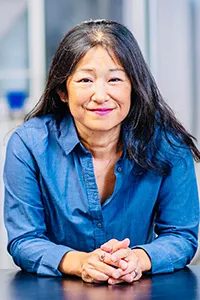
Dr. Naoko Ellis is a professor in the UBC Department of Chemical and Biological Engineering with a profound desire to help create a low carbon future. Her commitment to a sustainable future is evident in her research interests, which include biomass utilization (bio-oil upgrading, biochar potential, and hydrogen production), sustainability leadership, CO2 capture (chemical looping systems), and transdisciplinary learning. She is curious about how learning with and from "others" - crossing the disciplinary boundaries - can inform and frame the complex societal problems we face. Her current projects includes Transdisciplinary Collaborative PhD Program for Climate Emergency development, Carbon Capture Utilization and Sequestration road mapping for BC, renewable natural gas production among others.
Dr. James Olson, Dean, Faculty of Applied Science, UBC
Image
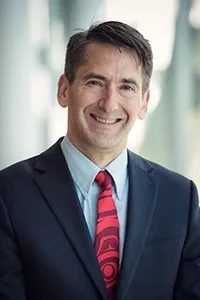
James A. Olson, PhD, PEng, is a professor of Mechanical Engineering and the dean of the UBC Faculty of Applied Science. He was the past associate dean of Research and Industry Partnerships, director of UBC’s Pulp and Paper Centre and is an internationally recognized forest products researcher who has been actively involved in the transformation of the forest sector into a vibrant diversified bio-products industry. He currently leads a $4M research consortium focused on industrial energy conservation, as well as a research group focused on the development of novel biomaterials. His research has been the recipient of 2 NSERC Synergy Awards, the 2008 Lieutenant Governor’s Award for Innovation, the 2009 Fundamental Research Committee’s Van den Akker Gold medal and several best paper awards.
Nathaniel Amann-Blake, Assistant Deputy Minister, B.C. Ministry of Energy, Mines & Low-Carbon Innovation
Image
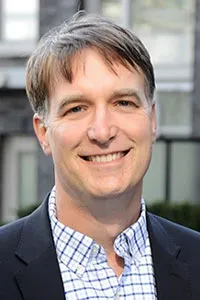
Nathaniel Amann-Blake (Nate) was appointed Assistant Deputy Minister of the Oil and Gas Division, Ministry of Energy, Mines and Low Carbon Innovation in December 2021.
Prior to this role, Nate held senior leadership positions in the Ministry including Assistant Deputy Minister of the Mines Health, Safety and Enforcement Division and Executive Lead for Compliance and Enforcement in BC.’s mining sector. Nate joined the Province of BC in 2007 with the Environmental Assessment Office managing the review of major projects. Nate previously worked with the Government of Canada in Indigenous Affairs.
Nate holds a B.Sc. in Geography from the University of Victoria and an M.Sc. in Environmental Policy from the University of Oxford. He has three children and lives in Victoria, BC.
Vida Ramin, Director, Regulatory Policy, B.C. Ministry of Energy, Mines & Low-Carbon Innovation
Image
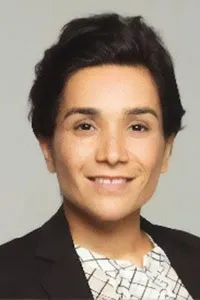
Vida Ramin has nearly 20 years of public policy, government and regulatory affairs and Indigenous relations experience gained through various roles with federal and provincial government agencies, the resource sector and a national industry association. Ms. Ramin currently serves as the Director, Regulatory Policy at the Ministry of Energy, Mines and Low Carbon Innovation’s Oil and Gas Division. She leads a team responsible for the development of policies, legislation, regulations and programs aimed at ensuring an environmentally sustainable and socially responsible upstream oil and gas sector. Vida works in a multi-stakeholder environment to support the Province’s implementation of the CleanBC Roadmap to 2030 as it relates to decarbonizing British Columbia’s oil and gas industry. Among other things, this includes ensuring that an appropriate enabling environment exists to advance the wide-scale deployment of carbon capture and sequestration technologies, a key emission reduction strategy for our collective transition to net-zero by 2050.
She holds a Master of Public Administration (Public Policy major), a Post-Baccalaureate Diploma in Environmental Science and Applied Management and an undergraduate degree in Physical Geography.
Dr. Amy Kim, Associate Professor, Transportation Engineering
Image
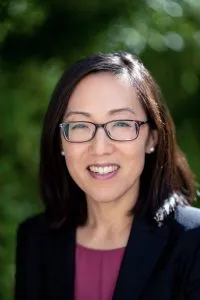
Amy Kim joined UBC in March 2021. Her research program in transportation systems analysis focuses on resource allocation across multimodal long-distance transportation systems. More recently, her work has focused on developing tools to support strategic transportation decision-making for climate change response and adaptation, in collaboration with climate and wildland fire scientists. Between her MS and PhD degrees from the University of California, Berkeley, Amy spent four years as an engineering consultant in California and British Columbia, with projects in Metro Vancouver including the Trans-Canada Highway and the Evergreen Line. Prior to joining UBC, Dr. Kim held a faculty appointment at the University of Alberta.
Richard Truman, Vice President, External Relations, Geoscience BC
Image
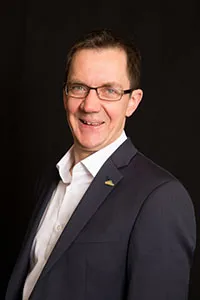
Richard Truman is an external relations and communications professional with 15 years of community engagement and communications experience in Canada and Europe. Richard joined Geoscience BC in early 2017 and is responsible for creating and implementing communication strategies to engage the diverse audiences the organization is trying to reach, including Indigenous groups, the resource sector, universities, governments, and communities. Prior to this role, Richard lead communications and engagement projects for CopperMoon Communications and The Castlemain Group. This included bringing together Indigenous leadership, community members, legal teams, negotiators, Provincial and Federal governments and the resource sectors on subjects such as Impact Benefit Agreements.
Dr. Curran Crawford, Professor, UVic Institute for Integrated Energy Systems
Image
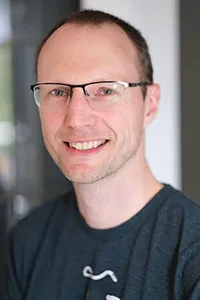
Dr. Crawford is a professor in Mechanical Engineering at the University of Victoria, director of the Sustainable Systems Design Laboratory (SSDL) and part of the Institute for Integrated Energy Systems (IESVic). His lab focuses on renewable and beyond net-zero energy systems, in particular optimization of floating offshore and airborne wind energy systems, as well as other offshore renewables including tidal and wave energy and the current Solid Carbon offshore CCS project. His research work also includes uncertainty quantification (UQ) and machine learning (ML) for energy systems optimization more broadly, with applications to grid and off-grid renewables integration, carbon capture utilization and storage (CCS/CCUS), energy storage modalities, e-fuels, and electrified transportation.
Dr. Greg Dipple, Professor, UBC Geological Sciences
Image
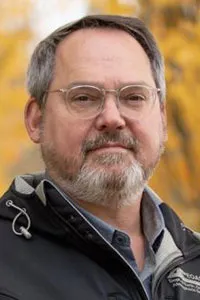
Greg Dipple is Professor of Geological Sciences at the University of British Columbia. He studies the processes of and driving forces for mineral-fluid reactions, including those that modulate long-term climate through chemical weathering. He has published extensively on fluid-rock interactions from the deep Earth to its surface. Through field, experimental, and modeling studies, he and his students and postdocs have demonstrated that weathering of alkaline mine wastes are vastly accelerated over background weathering rates and impact the short term carbon cycle. Current work focuses on industrial control of these processes for carbon capture, utilization and storage. Dr. Dipple has worked at The University of British Columbia since 1992. He has served as a Department Head and Associate Dean, and in administrative roles for the Mineral Deposit Research Unit and the Bradshaw Research Institute for Minerals and Mining.
Dr. Elod Gyenge, Professor, UBC Chemical & Biological Engineering
Image
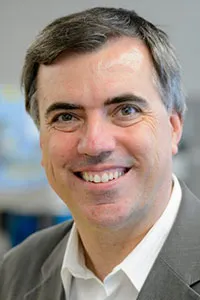
The mission of Dr. Gyenge’s research program is to investigate and develop highly-active, durable and cost-effective electrocatalysts and electrodes for a variety of electrochemical systems (batteries, fuel cells, and electrosynthesis) and to integrate them within unique cell designs. One area of great interest is utilization of CO2 for electrochemical power sources and energy storage. Until recently, CO2 has not been considered as an active species for battery applications. Dr. Gyenge’s group is at the forefront of these new advancements by pioneering technologies for CO2 utilization in a battery setting. A major component of this research is a new class of redox flow batteries invented by Dr. Gyenge, namely, the carbon dioxide redox flow battery (CRB), which is now globally patented. This award-winning battery is intended for large, grid-scale, energy storage and could bring together industries with large CO2 emissions (including cement, petrochemical, steel, etc.) with renewable energy generators (e.g., solar, wind) in order to decarbonize vital sectors of the Canadian economy and assure a reliable supply of clean electricity.
Sergio Berretta, Adjunct Professor, UBC Chemical & Biological Engineering
Image
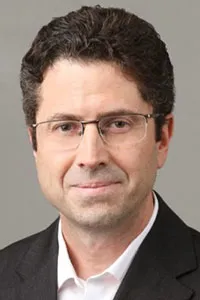
Sergio Berretta joined UBC in 2019 bringing over twenty years of industrial experience on the scale-up, de-risking, and detailed engineering design of novel process technologies, including fifteen years working in the design and commissioning of large chemical plants worldwide, with projects in four continents. He is a past vice-president and chief operating officer of BC Research, a Canadian research and development service provider with international reach, and one of the founding executives of the Carbon Capture and Conversion Institute in Canada. He is also the designer and developer of UBC’s SPE 505 course, Technology Commercialization for the Manufacturing Industry, and co-designer and co-developer of UBC’s CHBE 488-588 course, Carbon Capture, Conversion, and Sequestration Technologies.
Drew Leyburne, Assistant Deputy Minister of the Energy Technology Sector, Natural Resources Canada
Image
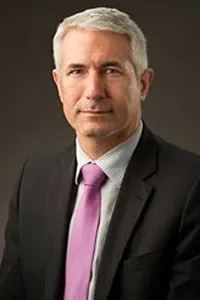
Drew Leyburne is the Assistant Deputy Minister, Energy Technology Sector at Natural Resources Canada (NRCan). Prior to his current position, Mr. Leyburne served as Director General in various roles at NRCan, worked at the Privy Council Office, and was an Associate with McKinsey & Co. Drew holds degrees from Oxford University and Bishop’s University.
NRCan’s Energy Technology Sector supports the advancement of clean energy technologies through scientific research and program delivery in energy research, development, and demonstration. In addition, Mr. Leyburne is responsible for national Canmet laboratories in Varennes (Quebec), Ottawa (Ontario) and Hamilton (Ontario). Along with NRCan’s Canmet facility in Devon (Alberta), these labs drive the development and demonstration of clean energy technologies and advanced materials to support government priorities, with the ultimate goal of creating a lower-carbon economy, both domestically and internationally.
Dr. Robin Hughes, CanmetENERGY Research Scientist, Natural Resources Canada
Image
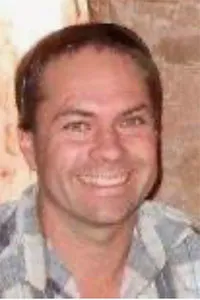
Robin is a senior research scientist (chemical engineer) at CanmetENERGY, Natural Resources Canada, where he leads the Fluidized Bed Conversion & Gasification team in the development of breakthrough technologies for reducing greenhouse gas emissions from industrial facilities. Robin’s team focusses on advancing technology through the pilot scale and hence acts as a bridge between academic lab work and industrial demonstration of technology. His carbon capture technology development work spans pre-combustion, oxy-combustion and post combustion routes and a broad range of applications including power, oil & gas, iron & steel, and hydrogen production.Most recently, Robin has kicked off the development of a National CCUS Assessment Framework for Canada in order to:
- develop a rigorous technical and economic basis for policy and program development within Provincial and Federal governments for CCUS
- provide industry with an open source, customizable, set of modelling tools for evaluating CCUS technologies and projects
- make the high quality data required for CCUS modelling readily accessible
- facilitate the coordinated planning of large scale, integrated infrastructure for CCUS with key stakeholders from industry, academia and government
Dr. Ged McLean, Executive Director, BC Centre for Innovation and Clean Energy
Image
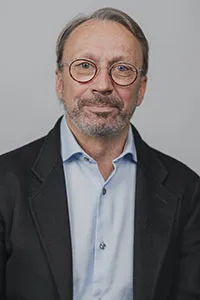
Dr. Ged McLean is an engineer and innovator who concentrates his efforts on developing and commercializing clean technology solutions. His experience ranges from fundamental academic research to new product innovation.
He was professor of Mechanical Engineering and Executive Director of the Institute for Integrated Energy Systems at the University of Victoria, founder, President and CTO of Angstrom Power Inc and Associate Director at the Pacific Institute for Climate Solutions before working to create the Centre for Innovation and Clean Energy.